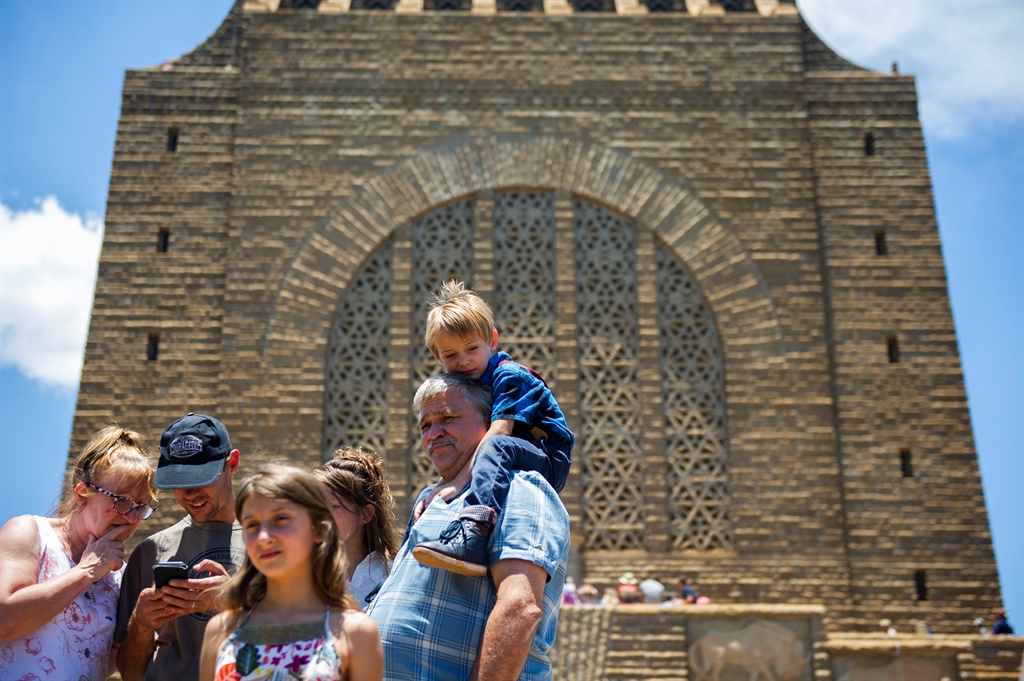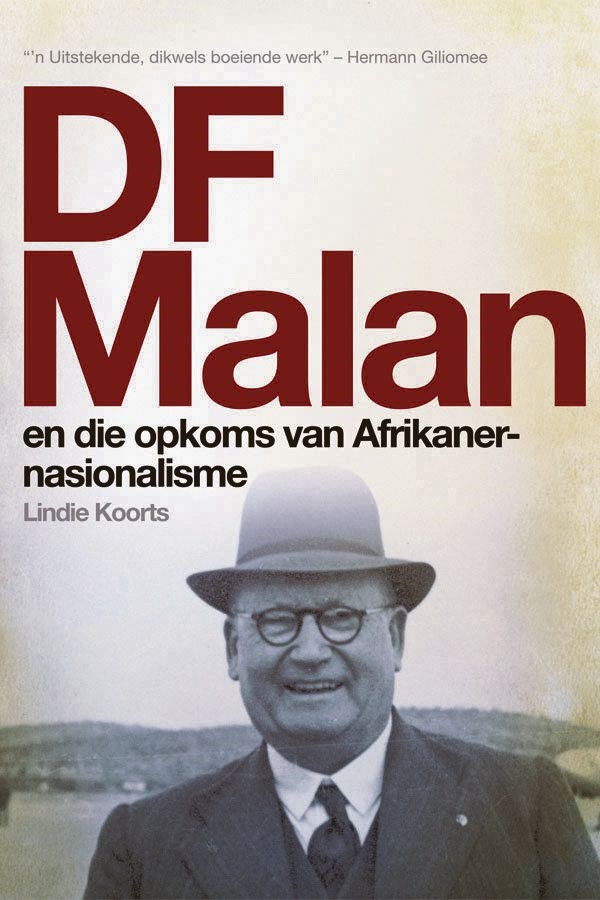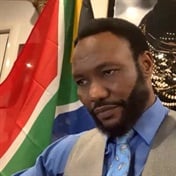When FW de Klerk made his submission to the TRC, no other Afrikaner was in as strong a position as he to set an example in facing up to the apartheid past, and he failed to do so, writes Lindie Koorts.
It has been a week consumed by outrage.
First there was outrage at the EFF's cynical disruption of the State of the Nation Address (SONA) – protesting apartheid president resident FW de Klerk's presence, then demanding Public Enterprises Minister Pravin Gordhan's dismissal.
De Klerk is anything but an admired figure in the post-1994 era and hatred of him as the last apartheid president has mounted in recent years, but his presence at previous SONAs did not seem to bother the EFF. Their outrage this year, 30 years after his announcement, in that very same Parliament, of Nelson Mandela's release and the unbanning of the ANC, PAC and SACP, seemed like nothing more than cheap populism.
But then De Klerk and his foundation spectacularly put their foot in it by failing to acknowledge that apartheid was a crime against humanity. This time, the anger was genuine and the backlash instant and widespread, forcing the FW de Klerk Foundation to issue a statement of apology.
In the wake of this outrage, questions are being asked about De Klerk's historical legacy. From a historian's perspective, it is bound up with a single moment and the ramifications of that moment: February 2, 1990. And as we debate the events that followed and the outcome of the political transition, our interpretations of the key figures involved are ever-shifting. Was De Klerk the leader who, unlike his predecessor, finally summoned up the moral courage to end apartheid and lead his people out of the desert, or did he merely capitulate? Was Nelson Mandela the great peacemaker and reconciler, or did he sell out?
Much has been written, not least by De Klerk himself, about the forces that brought him to February 2, 1990. On that day, he demonstrated that he was a man who could read the moment and provide crucial leadership.
While the townships convulsed, while the UDF marched and while international sanctions were crippling the economy, there were also important shifts in the white Afrikaner community.
By the late 1970s, Afrikaner intellectuals were divided into two camps: the so-called verligtes (enlightened) and verkramptes (constricted). The former realised that apartheid could not continue indefinitely, reforms were needed. The latter clung to a fundamentalist, Verwoerdian conception of apartheid. In the years that followed, this gulf grew into a chasm.
The Afrikaner working class, which had already lost its protections following the recommendations of the Wiehahn commission, which also saw the legalisation of African trade unions, grew ever more disenchanted with the National Party (NP).
When Andries Treurnicht established the Conservative Party (CP) in 1982, the disaffected right-wing and blue-collar workers united behind him, their ranks swelling throughout the decade.
By 1989, a third of white voters voted for the CP – if its growth continued unabated, the NP would soon lose power. This was both a symbolic and political blow to the NP, which until then, had drawn on a consolidated Afrikaner base.
At the same time, prominent Afrikaner organisations, such as the Dutch Reformed Church and the Broederbond, withdrew their unqualified support of apartheid. Afrikanerdom was tearing itself apart and the NP's base was crumbling.
Therefore, when communism fell in Eastern Europe in late 1989, it presented an opportunity.
With the USSR weakened, the ANC could no longer count on support from Moscow, thereby strengthening the NP's hand in any future negotiations. On the other hand, the Communist bogeyman, which had kept Afrikaners in check for decades, could no longer be called upon to legitimise the NP's rule.
With the ground shifting beneath his feet, De Klerk chose the right and opportune moment to take a giant leap. Which makes his utter inability to read the moment in February 2020 all the more poignant.
This misreading rests on De Klerk's fundamental inability to face up to his, his party's and his people's apartheid past. There was a crucial moment and wasted opportunity, in 1996, when De Klerk testified at the Truth and Reconciliation Commission (TRC).
In his submission, De Klerk gave a short oversight of Afrikaner history and the history of apartheid.
Yet his historical account effectively skipped over the first three decades of apartheid and attempted to position him and his party as the dismantlers of apartheid, not to be confused with the apartheid governments of John Vorster, Hendrik Verwoerd, Hans Strijdom and DF Malan.
There was no attempt to linger and reflect on the discriminatory legislation that divided families, destroyed homes and communities, wasted human potential and entrenched a broken socio-economic structure that continues into the present day.
In all fairness, I will concede that in the mid-1990s, following on the trauma of more than a decade of intense violence, the overwhelming focus was on violent atrocities, with less attention paid to apartheid's intrinsic structure of all-encompassing racial discrimination.
However, it is crucial to keep in mind that the daily and systematic humiliation endured by the majority of the population for more than four decades – and in the centuries before 1948 – was at its heart, and cannot be negated, as De Klerk tried to do, by crude body counts that seek to downplay apartheid in comparison to other atrocities. I often point out that the Holocaust lasted six years, while formal apartheid lasted for more than 40. Atrocities do not lend themselves to easy comparisons and doing so can be intensely misleading.
But even with regards to violence, De Klerk refused to accept any personal or political responsibility. Instead, he insisted that he never gave any orders for murders, tortures and rapes, he had appointed commissions of inquiry and he had sought to dismantle covert operations.
This may have been technically true and correct, but the implication was that there was no one to take full responsibility, on behalf of his people and his party, for apartheid in both the violent and wider sense.
No one took responsibility for the institution of apartheid laws – De Klerk was only willing to take the credit for dismantling them.
Almost in passing, in a single line, he expressed "sympathy" for those who had suffered under apartheid, and reiterated that he had already offered a public apology and was doing so again.
His speech was stiff, prepared and sanitised. There was no attempt at a personal or political expression of guilt, shame or remorse. Instead, his apology was littered with deflections and whataboutisms.
All sides had to apologise, he contended.
And it was clear: he would not apologise for anything beyond his personal and, in his opinion, limited culpability.
There was no wider apology or responsibility taken for apartheid as a system, no grand symbolic gesture. If there had ever been a time for such a gesture, this would have been the moment. It was a moment missed and a profound opportunity for reconciliation lost.
De Klerk's submission to the TRC has since become the playbook for Afrikaners' engagement with the apartheid past: deflection, whataboutism, limited culpability and an inability to express shame or remorse.
No other Afrikaner was in as strong a position as he to set an example in facing up to the apartheid past, and he failed to do so.
In 1996, having begun the journey six years earlier, he left his people in the desert.
And in 2020, it is clear that they, and he, are all still lost.
** Dr. Lindie Koorts is a historian at the International Studies Group, University of the Free State. She is the author of "DF Malan and the Rise of Afrikaner Nationalism".




 Publications
Publications
 Partners
Partners

























